Related Research Articles

"MMMBop" is a song written and performed by American pop rock band Hanson. It was released on April 15, 1997, as the lead single from their debut full-length studio album, Middle of Nowhere (1997). The song was nominated for two Grammys at the 40th Annual Grammy Awards and is the band's most successful single to date. "MMMBop" was a major success worldwide, reaching number one in at least 12 countries, including Australia, Canada, Germany, New Zealand, the United Kingdom and the United States.
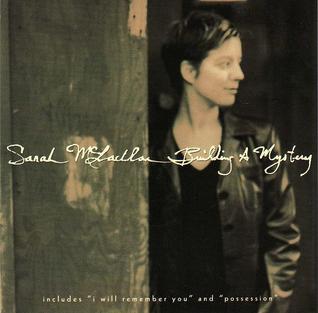
"Building a Mystery" is a song by Canadian singer-songwriter Sarah McLachlan from her fourth studio album, Surfacing (1997). At a live performance, Sarah explains the song as being "basically about the fact that we all... have insecurities to hide, and we often do that by putting on a facade." She also goes on to say that "unfortunately, if we just be who we are, that's usually the more attractive and beautiful thing".

"You Get What You Give" is a song by American alternative rock band New Radicals. It was the first and most successful single from their only studio album, Maybe You've Been Brainwashed Too (1998). Released on November 3, 1998, it reached number 36 on the US Billboard Hot 100 and number eight on the Billboard Modern Rock Tracks chart. Outside the US, it reached number five in the United Kingdom, number four in Ireland, and number one in Canada and New Zealand.
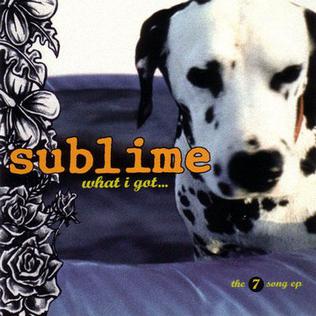
"What I Got" is a song from American band Sublime's self-titled third album (1996). It was the band's biggest radio hit, posthumously after singer Bradley Nowell's death in 1996 from a heroin overdose. It was the second single to be released by the band, following "Date Rape" (1991). The song's chorus is a lift from "Loving" by Half Pint. The song's melody is similar to the Beatles' "Lady Madonna".

"Angel" is a song by Canadian singer-songwriter Sarah McLachlan. The song first appeared on McLachlan's fourth studio album, Surfacing, in 1997 and was released as the album's fourth and final single in September 1998. The lyrics are about the death of Jonathan Melvoin (1961–1996), the Smashing Pumpkins' touring keyboard player, from a heroin overdose, as McLachlan explained on VH1 Storytellers. It is sometimes mistitled as "In the Arms of an Angel" or "Arms of the Angel".
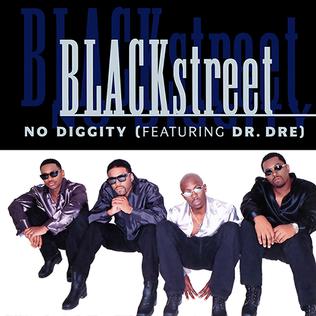
"No Diggity" is a song by American R&B group Blackstreet as the first single for their second studio album, Another Level (1996), featuring Dr. Dre and Queen Pen. Released on July 29, 1996, the song reached number one on the US Billboard Hot 100 and in Iceland and New Zealand. "No Diggity" ended "Macarena"'s 14-week reign atop the Billboard Hot 100. In the United Kingdom, the song peaked at number nine. "No Diggity" was the final number-one single of Cash Box magazine. The track sold 1.6 million copies in 1996 and won the 1998 Grammy Award for Best R&B Performance by a Duo or Group with Vocals. It uses samples from Bill Withers's Grandma's Hands.

"It Wasn't Me" is the first single from Jamaican-American reggae musician Shaggy's fifth studio album, Hot Shot (2000). The song features vocals from RikRok. The lyrics of the song depict one man (RikRok) asking his friend (Shaggy) what to do after his girlfriend caught him cheating on her with "the girl next door". His friend's advice is to deny everything, despite clear evidence to the contrary, with the phrase "It wasn't me."

"You're Still the One" is a song recorded by Canadian singer Shania Twain. It was released as the third single from her third studio album Come On Over (1997). The song was written by Twain and Robert John "Mutt" Lange and produced by Lange. It was released in the US on January 27, 1998, and was Twain's first single to be released to pop radio.

"I Wanna Be Bad" is a song by American singer Willa Ford from her first studio album, Willa Was Here (2001). The song features a guest appearance from rapper Royce da 5'9". Ford wrote it alongside Brian Kierulf and Josh Schwartz, who both handled the production, when her record label, MCA Records, told her to tone down her music. Ford refused, deciding to create a track with a rebellious message. After Jason Flom of Lava Records heard the song, he signed Ford to the label and included it on Willa Was Here. Lava and Atlantic Records released the song as Ford's debut single and the lead one from the album on April 24, 2001. A pop and dance-pop track, it has Ford explaining that she wants to be a "bad girl" because her partner makes bad behavior look so good. The lyrics contain messages of rebellion and being oneself against the influences of other people.
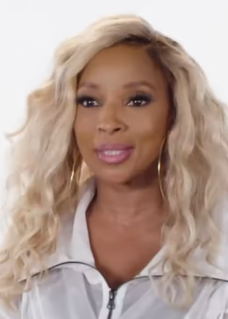
American singer Mary J. Blige began her career as a backing vocalist for Uptown Records in the early 1990s. In a career spanning more than thirty years, she has released 14 studio albums and 83 singles—including more than 20 as a featured artist. The “Queen of Hip-Hop Soul” has sold an estimated of over 100 million records worldwide, and over 20 million in the United States alone. Billboard ranked Blige as the 18th Greatest Billboard 200 Women of all time, the 45th Greatest Hot 100 Women of all time and 88th Greatest Artist of all time.

"One Day in Your Life" is a song by American singer Anastacia from her second studio album Freak of Nature (2001). Co-written with and produced by Sam Watters and Louis Biancaniello, the song was released as the album's second single on February 25, 2002, by Daylight Records and Epic Records. It was the first single from Freak of Nature to be released in the United States, peaking at number one on the Billboard Dance Club Songs chart.

"Closing Time" is a song by American rock band Semisonic. It was released on March 10, 1998, as the lead single from their second studio album, Feeling Strangely Fine, and began to receive mainstream radio airplay on April 27, 1998. The ballad was written by Dan Wilson and produced by Nick Launay.

"I Hope You Dance" is a crossover country pop song written by Mark D. Sanders and Tia Sillers and recorded by American country music singer Lee Ann Womack with Sons of the Desert. It is the title track on Womack's 2000 album. Released in March 2000, the song reached number one on both the Billboard Hot Country Singles & Tracks and Hot Adult Contemporary Tracks charts, and also reached number fourteen on the Billboard Hot 100. It is considered to be Womack's signature song, and it is the only Billboard number one for both Womack and Sons of the Desert.
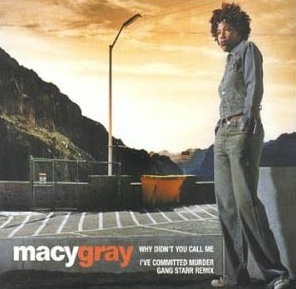
"Why Didn't You Call Me" is a song by American singer Macy Gray from her debut studio album, On How Life Is (1999). It was released on July 24, 2000, as the album's fourth and final single.

"Don't Say Goodbye" is a song by Mexican singer Paulina Rubio, taken from her sixth studio album and crossover album, Border Girl (2002). It was written by Joshua "Gen" Rubin and Cheryl Yie and produced by Rubin. "Don't Say Goodbye" is a dance-pop song and talks about rejecting the idea of not saying goodbye to a lover. The song was released through Universal Records on 29 April 2002 as the lead single from the album. In Latin America and France, a Spanish version of the song titled "Si Tú Te Vas" was released, written by Luis Gómez Escolar.

"Hold On" is a song by Scottish singer KT Tunstall, written by Tunstall and produced by Steve Osborne for Tunstall's second album, Drastic Fantastic (2007). The song was released as the album's first single on 16 July 2007 in the United States. It was then released in the United Kingdom as a download single on 13 August 2007 and as a CD and 7-inch single on 27 August 2007. "Hold On" peaked at number 21 on the UK Singles Chart, number 19 in Norway, and number 26 in Italy and Switzerland. In North America, the song reached number 46 in Canada and number four on the US Billboard Bubbling Under Hot 100, topping the Billboard Adult Alternative Songs chart for 11 weeks.

"Standing Still" is a song by American singer-songwriter Jewel. Recorded in Nashville, Tennessee, the song was included on her fourth studio album, This Way (2001). Jewel wrote the song sometime after the release of her previous album, Spirit, while she was taking a break from her music career. According to Jewel, the song is about stepping back to avoid stagnation from a busy career and wanting a change of scenery from fame.

"Barbie Girl" is a song by Danish-Norwegian dance-pop group Aqua. It was released in April 1997 as the third single from the group's debut studio album, Aquarium (1997). The song was written by Søren Rasted, Claus Norreen, René Dif, and Lene Nystrøm, and was produced by Johnny Jam, Delgado, Rasted, and Norreen. It was written after Rasted saw an exhibit on kitsch culture in Denmark that featured Barbie dolls.

"Chemistry" is a song by American rock band Semisonic. It was their first single on their 2001 album, All About Chemistry. Released to radio on January 8, 2001, it reached number six on the US Billboard Adult Alternative Songs chart, number 21 in New Zealand, number 35 in the United Kingdom, and number 39 in Ireland.
References
- 1 2 3 4 Taylor, Chuck (March 23, 2002). "Reviews & Previews: Singles". Billboard. Vol. 114, no. 12. p. 26. Retrieved July 6, 2019.
- 1 2 3 4 5 6 Slezak, Michael. "Why Wasn't This a Huge Hit?: Res' 'They Say Vision'". Entertainment Weekly. Meredith. Retrieved July 6, 2019.
- 1 2 "Chart Search: "Res - They-Say Vision"". Billboard.biz. Retrieved June 23, 2019.
- 1 2 3 "Res Chart History: Bubbling Under Hot 100". Billboard.biz. Billboard. Retrieved June 23, 2019.
- 1 2 "Billboard Pop Songs: April 6, 2002". Billboard. Retrieved June 24, 2019.
- 1 2 "Billboard Video Monitor for the Week Ending April 21, 2002". Billboard . Vol. 114, no. 18. May 4, 2001. p. 53. Retrieved June 23, 2019.
- 1 2 Mayfield, Geoff (May 4, 2002). "Over the Counter: Patience Pays". Billboard. Vol. 114, no. 18. p. 55.
- ↑ Robinson, Phoebe (2016). You Can't Touch My Hair: And Other Things I Still Have to Explain. London: Penguin. p. 23. ISBN 9780143129202 . Retrieved June 23, 2019.
- 1 2 3 "Res Chart History (Pop Songs)". Billboard. Retrieved June 24, 2019.
- ↑ "Dance Club Songs the Week of May 25, 2002". Billboard. Retrieved July 22, 2021.
- ↑ "They-Say Vision" (US Promotional CD single liner notes). Res. MCA Records. 2002. MCAR-25650-2.
{{cite AV media notes}}: CS1 maint: others in cite AV media (notes) (link) - ↑ "They-Say Vision" (Europe Promotional CD single liner notes). Res. MCA Records. 2002.
{{cite AV media notes}}: CS1 maint: others in cite AV media (notes) (link) - ↑ "They-Say Vision" (Japan CD single liner notes). Res. MCA Records. 2002. UICC-5009.
{{cite AV media notes}}: CS1 maint: others in cite AV media (notes) (link) - ↑ "They-Say Vision" (US Promo 12" single liner notes). Res. MCA Records. 2002. MCAR-25690-1.
{{cite AV media notes}}: CS1 maint: others in cite AV media (notes) (link) - ↑ "Res Chart History (Dance Club Songs)". Billboard. Retrieved June 24, 2019.